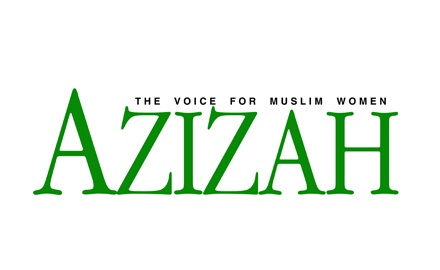
RNA - Azizah Magazine isn’t named after its Chief Operations Officer, Azizah Kahera. But the name is no coincidence.
In the United States, women’s magazines sometimes boast common names of Western women, such as Marie Claire or Elle. For Muslim-American women, these names are not so common. Instead, a Muslim parent might be likely to name his or her daughter something else. Something like Azizah.
That’s exactly why the magazine’s founding Editor-in-Chief Tayyibah Taylor chose the name Azizah, her daughter Mariam Abdul-Aziz said.
Azizah Magazine was founded in October 2000 with the goal of catering to Muslim-American women by sharing their stories. The magazine is now 16 years old and has expanded to national and global subscribers.
When Taylor died in 2014, her obituaries were full of the titles of this accomplished woman — entrepreneur, magazine founder, peace activist, mother of five, sister, mentor, teacher and friend.
Taylor was recognized by the Religious Freedom and Business Foundation for her roles as interfaith activist and business owner. Taylor was able to seamlessly blend her business with a platform for Muslim women to present their voices within the Muslim community, or ummah, and to the broader world.
“Telling the stories of Muslim women has really impacted not just the United States but the world,” Abdul-Aziz said. “When people pick up the magazine, whether they’re Muslim or non-Muslim or a man or what have you, they can see how Muslim women are Americans just like anybody else.”
Abdul-Aziz accepted the Global Business and Interfaith Peace Award for her mother, Taylor. The Religious Freedom and Business Foundation and the United Nations Global Compact Business for Peace honored 12 business-leaders from around the world at an award ceremony held in Rio de Janeiro this fall.
When Abdul-Aziz talks about the magazine, she often borrows a phrase that appears on Azizah Magazine’s website, “It’s a catalyst for empowerment.”
The magazine has outgrown its roots and adapted to serve larger audiences. The Muslim population in the United States is growing, and the Atlanta-based Azizah team intends to keep up.
“A lot of times, Muslim women are portrayed as oppressed or uneducated or walking 10 steps behind, and to be honest that’s just not really how we are in the United States,” Abdul-Aziz says.
While Azizah Magazine has survived 16 years, other publications written for Muslims have not been so lucky, or have not grown so large, Abdul-Aziz said. But she sees this type of journalism as critical in a diverse population.
Abdul-Aziz wants to continue the growth of the magazine to honor her mother and all Muslim-American women. Even the ones not named Azizah.
847/940